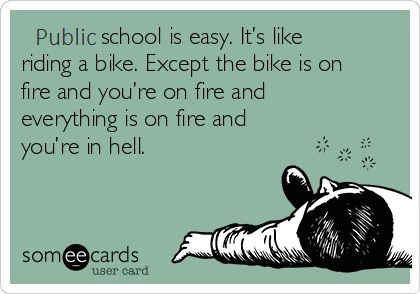
In a previous post, I counted down the first half of my Top 10 Teacher Myths. I broke the post in half partly due to the length, but I also wanted to solicit #11FF thoughts on the remaining five.
It was perhaps cruel to leave you waiting for Part Two. Fear not, however, my Eleven Faithful Followers – our long national nightmare is over. Here are my Top 5 Teacher Myths:
 #5 – Those who can, do; those who can’t, teach. I didn’t want to use this one because I thought it was too archaic. After reader feedback, however, it’s clearly not – they find it flung about like primate poo whenever education is discussed.
#5 – Those who can, do; those who can’t, teach. I didn’t want to use this one because I thought it was too archaic. After reader feedback, however, it’s clearly not – they find it flung about like primate poo whenever education is discussed.
Here’s a simple way to dispel this lamest of illusions. You non-teachers out there, choose whatever it is you’re best at – doing taxes, working on teeth, selling dishwashers, trading stock… whatever.
Now go teach it to 30 teenagers at a time who are there against their will. One hour a day, five groups a day. Continue until 90% of them can pass a multiple choice test made by people who don’t do what you do – the taking of which is nothing like doing your actual thing.
Those who can, teach; those who can’t, can kiss my-
Sorry. A tad bitter.
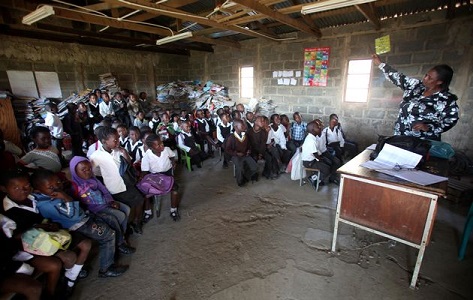 #4 – Teachers aren’t in it for the money (so abuse them at will and why pay them at all?) It’s true most of us didn’t sign up in order to tap into unlimited wealth and fame – but this is a false dichotomy. It presumes there are only two types of careers in the world – narcissistic, money-hungry, and exploitative, or caring, selfless, and would rather not get paid at all.
#4 – Teachers aren’t in it for the money (so abuse them at will and why pay them at all?) It’s true most of us didn’t sign up in order to tap into unlimited wealth and fame – but this is a false dichotomy. It presumes there are only two types of careers in the world – narcissistic, money-hungry, and exploitative, or caring, selfless, and would rather not get paid at all.
Nonsense.
Even those pushing for teacher raises usually miss the rhetorical mark. We don’t need better teacher pay so that we can draw the ‘best people’ to the profession (although it might help with those already IN the profession who’ve fled to surrounding states). We need better teacher pay so that those called to the profession – the ones on their way to becoming the best people for it – can pursue that calling and still make their car payment and feed their family.
It’s not the NHL – we’re not trying to secure a right-shooting defenseman without hitting our salary cap. We’re trying to scrape together enough that those willing and able to serve without riches or glory can do so.
Duh.
 #3 – The Number One Factor in a child’s education is the quality of his or her teacher.
#3 – The Number One Factor in a child’s education is the quality of his or her teacher.
No it’s not. Teachers matter, but parents matter more. Poverty matters more. Upbringing, and ZIP code, and culture, and home life, and all sorts of complicated things schools can barely impact, matter more.
Lots more.
We wish they didn’t, because we want to believe we can fix it all by force of will and a dash of talent. But the issues are bigger and deeper and more complex than any number of inspirational memes can solve.
That being said, none of this is an excuse for educators. God grant me the serenity, and all that. Step up and teach as if you ARE the most important factor in their worlds – as if you and you alone stand between them and destruction.
I mean, if you’re particularly concerned with reality – boy, did YOU choose the wrong profession!
 #2 – Such and such kids will learn anyway / succeed anyway / be fine no matter how big their classes or who teaches them.
#2 – Such and such kids will learn anyway / succeed anyway / be fine no matter how big their classes or who teaches them.
When confronted with shrinking budgets, it’s tempting to pack the ‘honors’ kids into the fewest possible sections in order to maintain manageable class sizes for the rest. When not every faculty member is a superstar, it perhaps makes sense to assign stronger teachers to those most likely to get you on the ‘needs improvement’ list – leaving the ‘good kids’ with the ‘leftover’ teachers.
Whatever arguments may be made for such maneuvering, we salve our consciences by proclaiming that ‘those kids will learn anyway’ – as if they’re fully developed, self-starting little learning machines.
Ridiculous. Maybe they won’t be getting into serious discipline trouble, or failing their end-of-the-year exams, but the suggestion that any subset of children will learn and grow the same amount whether we’re even in the building or not is insulting – and blatantly false.
The ‘best’ students – academically, behaviorally, whatever – need to be pushed and challenged and understood and driven just like any other kid. Often they need it more than others, being the least likely to have experienced meaningful challenge or engagement before.
We’d like to keep our bottom 20% out of prison, but we’ll need tomorrow’s leaders and world-changers to know and be able to do stuff, too. Thinking creatively, chasing truth alone or in groups, the value of mistakes and resolve – these aren’t genetic traits; they’re inculcated by great teachers.
Do what you must to handle difficult logistics, but let’s not coat it in prevarication just so we’ll feel better.
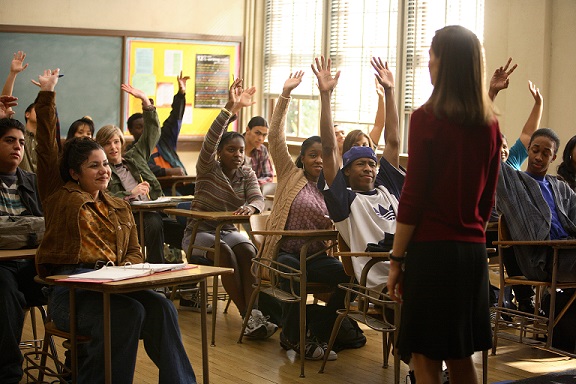 #1 – If you’ll just do X, your students will Y – flip the class, eliminate grades, ask about their feelings, model enthusiasm, make it about the kids, make connections to real life, etc.
#1 – If you’ll just do X, your students will Y – flip the class, eliminate grades, ask about their feelings, model enthusiasm, make it about the kids, make connections to real life, etc.
This is number one AND the one we most inflict on ourselves. Every time someone has a new idea, or strategy, or approach, and it works for them, it becomes a silver bullet for all times, all teachers, and all situations.
Why would we even begin to think that could be true?
I’ve learned much from teachers who ‘flip the lesson’ – I think it’s a great idea in many circumstances, and I’d have never thought of it. I have plenty to say about how we treat our kids from day to day, and how that impacts their willingness and ability to learn. And if taking out all the desks gives you a jump start to learnify your lil’ darlings, more power to you!
But there’s no Holy Grail we’ve simply missed for two hundred years. There’s no secret which, once unleashed, will change everything for everybody and finally solve the great educational crises of our day.
That’s silly.
It becomes destructive when we convince struggling teachers or ambitious administrators that they must ignore everything their eyes, ears, and guts are telling them and DO THE FINALLY RIGHT THING until the MAGIC HAPPENS. Every time some pedagogical potentate in a bow tie writes a book the superintendent likes or a couple of principals have a particularly good conference weekend in Vegas, they think leadership suddenly means they can mandate the #$%& out of something and all will be solved.
Great ideas are great ideas. Important discussions are important discussions. Keep sharing them, and having them, and trying them. But stop trying to build pedagogical vending machines – insert idea here, win improved test scores, or maybe a tearful thanks from Lil’ Enrique!
OK, that’s it – that’s what I’ve got. What did I leave out? What would you change? I look forward to hearing more from you.
Who knows? I might like your ideas better and revise the whole thing in a later post so I can take credit for them. Now THAT’S a thing teachers actually DO.
RELATED POST: Top Ten Education Myths (Part One)
RELATED POST: The Seven Reasons Every Teacher MUST Know Why Kids Learn!
RELATED POST: Seven Steps to Personal and Professional Growth, Feat. Wild Cherry

 I don’t do many numbered lists, but I notice they’re going out of vogue and figured that was the perfect time to do one more. It’s like wearing cargo shorts, or getting excited about Kings of Leon.
I don’t do many numbered lists, but I notice they’re going out of vogue and figured that was the perfect time to do one more. It’s like wearing cargo shorts, or getting excited about Kings of Leon.  #10 – The students will make you crazy. There are certainly times that my students leave me frustrated, bewildered, or even frothing towards neurosis. They can be a difficult lot, no matter how many inspirational memes you retweet each week.
#10 – The students will make you crazy. There are certainly times that my students leave me frustrated, bewildered, or even frothing towards neurosis. They can be a difficult lot, no matter how many inspirational memes you retweet each week.  #9 – The teacher students like the best is the best teacher. This is not without elements of truth. It’s difficult to reach kids who DON’T like you, and teachers who are comfortable with and care about their students tend to give more, and get more from them.
#9 – The teacher students like the best is the best teacher. This is not without elements of truth. It’s difficult to reach kids who DON’T like you, and teachers who are comfortable with and care about their students tend to give more, and get more from them.  #8 – Teachers are afraid of accountability / Teachers’ unions are there to make sure their members aren’t held to any real standards. We, as a profession, are largely culpable for this perception. There are few things more horrifying to watch than a teachers’ strike on the news – horrible slogans, bad hair, and chants beginning with “2, 4, 6, 8…”
#8 – Teachers are afraid of accountability / Teachers’ unions are there to make sure their members aren’t held to any real standards. We, as a profession, are largely culpable for this perception. There are few things more horrifying to watch than a teachers’ strike on the news – horrible slogans, bad hair, and chants beginning with “2, 4, 6, 8…”  #7 – Teachers have it easy / Teachers work longer and suffer more nobly than any other profession in the history of mankind. We may overreact to tired old cracks about ‘having summers off’ and whatnot, but far sillier are our efforts to establish that we do, in fact, martyr ourselves in ways that leave slackers like Gandhi and Mother Theresa bathed in shame and inadequacy.
#7 – Teachers have it easy / Teachers work longer and suffer more nobly than any other profession in the history of mankind. We may overreact to tired old cracks about ‘having summers off’ and whatnot, but far sillier are our efforts to establish that we do, in fact, martyr ourselves in ways that leave slackers like Gandhi and Mother Theresa bathed in shame and inadequacy. 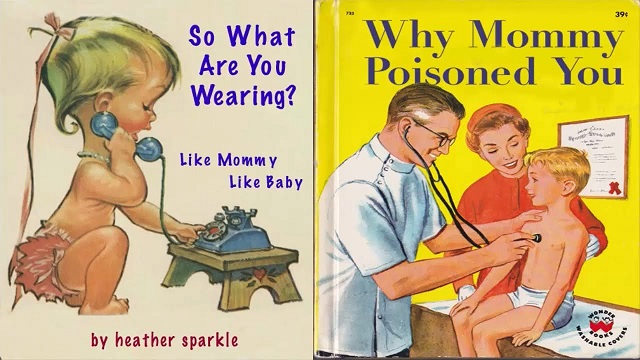 #6 – Such and such kids won’t learn no matter what you do.
#6 – Such and such kids won’t learn no matter what you do.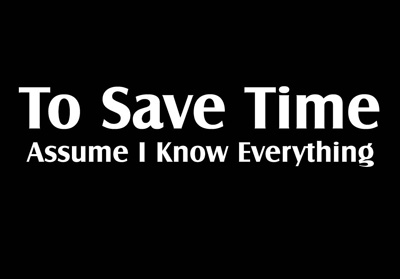
 Kids learn while playing, or while caught up in other things. Everything from blocks and unstructured time as a little person through video games or online arguments as a teen – information, good or bad, is created, encountered, or absorbed. This one is so very important and can be crazy effective – but it’s the one most threatened by the Cult of Assessment and our own unwillingness to Defy the Beast.
Kids learn while playing, or while caught up in other things. Everything from blocks and unstructured time as a little person through video games or online arguments as a teen – information, good or bad, is created, encountered, or absorbed. This one is so very important and can be crazy effective – but it’s the one most threatened by the Cult of Assessment and our own unwillingness to Defy the Beast.  We all know the value of parents reading to their children. In a perfect world they take them to museums or musical performances, or travel places promoting conversation and reflection. How many times a day does a parent or sibling overtly attempt to explain a ‘why’ or a ‘how’ to a little kid?
We all know the value of parents reading to their children. In a perfect world they take them to museums or musical performances, or travel places promoting conversation and reflection. How many times a day does a parent or sibling overtly attempt to explain a ‘why’ or a ‘how’ to a little kid? This is the ideal. Those kids who keep wanting to know if they can leave your class to go finish something in Engineering? They tend to get good at engineering. That girl who reads voraciously? She tends to get pretty good at reading. And don’t get me started about young people truly devoted to their choir, marching band, baseball team, or speech & debate.
This is the ideal. Those kids who keep wanting to know if they can leave your class to go finish something in Engineering? They tend to get good at engineering. That girl who reads voraciously? She tends to get pretty good at reading. And don’t get me started about young people truly devoted to their choir, marching band, baseball team, or speech & debate.  I have mixed feelings about this one.
I have mixed feelings about this one.  This may begin from above – parents, or even the school system itself – but often becomes internalized. Either way, this is a stress-driven type of learning with little lasting value.
This may begin from above – parents, or even the school system itself – but often becomes internalized. Either way, this is a stress-driven type of learning with little lasting value. This one is pretty rare if you eliminate the vague terrors in play above. There are a few, however, who are specifically chasing a degree in veterinary medicine, motorcycle repair, or that study abroad opportunity in Monaco. They press on because they know what they want.
This one is pretty rare if you eliminate the vague terrors in play above. There are a few, however, who are specifically chasing a degree in veterinary medicine, motorcycle repair, or that study abroad opportunity in Monaco. They press on because they know what they want.  If you torture them enough, confine them in stale rooms and badger them into compliance…
If you torture them enough, confine them in stale rooms and badger them into compliance… 